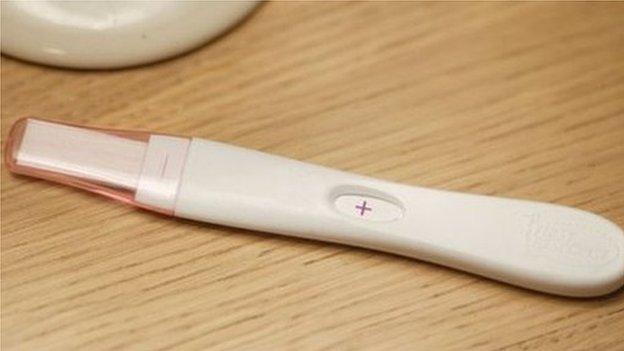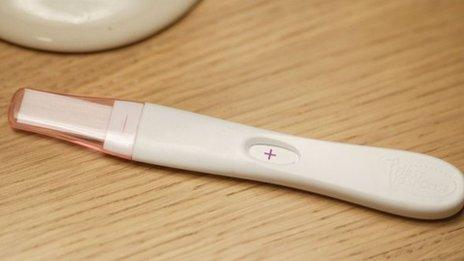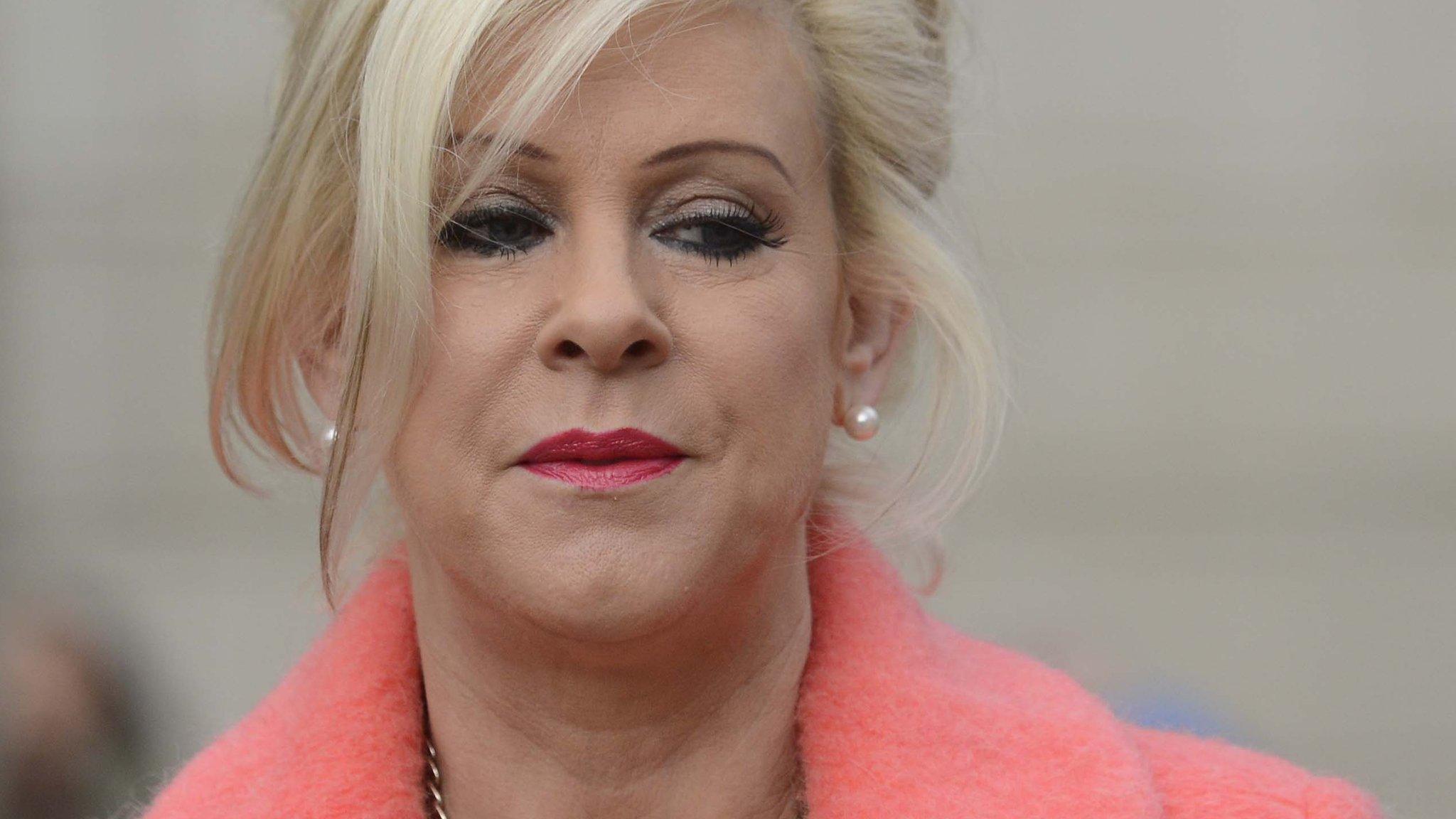Cathal Ó hOisín: MLA speaks about losing baby to fatal foetal abnormality
- Published
Sinn Féin's Cathal Ó hOisín said no dogma can account for the personal trauma that the death causes
A Sinn Féin MLA has spoken about what it was like to lose a baby due to a fatal foetal abnormality.
Cathal Ó hOisín and his wife lost their baby daughter 12 years ago.
In his first interview, the East Londonderry MLA described the experience as "very emotional and fairly surreal".
He hopes his story will contribute to the debate about whether NI's abortion law should be amended to reflect cases of fatal foetal abnormality.
"Your baby is born and dies in the same instance, that's how surreal it is really," he said.
"It's a totally traumatic experience for everybody, but particularly for the mother of course."
He said the memory was still raw.
"It's absolutely devastating as you have no indication up until that point and then within a 12 or 24 hour period your whole world is stood on it's head," he said.
Mr Ó hOisín supported his wife to carry their baby for the full-term of her pregnancy, but makes the point that a woman should be given the choice of whether to go ahead with a pregnancy or abortion.
He says he hopes his family's experience will contribute to the ongoing debate about whether the abortion law in Northern Ireland should be amended to reflect cases of fatal foetal abnormality.
'Compassion'
"I don't think there can be a dogmatic or ideological position on this," he said.
"I think people have to look at this very much in human terms and show some compassion in these cases.
"At the end of the day you are talking about a baby, a baby that maybe was planned for and is certainly wished for and wanted."
Mr Ó hOisín tells me that there was no counselling or support available from his health trust.
A view that was highlighted in an Amnesty International report into abortion services in Northern Ireland.
It was highly critical of the current law, including the lack of guidance for cases of fatal foetal abnormality.
It said where a woman lives can depend on whether she can access services including a legal abortion.
Sinn Féin will hold its Ard Fheis (annual conference) next week and will debate whether current abortion law should reflect cases of fatal foetal abnormality.

Abortion is only allowed in Northern Ireland in very restricted circumstances
"I suppose this was very much an anomaly within the party whereby this had not been addressed or dealt with previously, so it's really dotting the i's and crossing the t's more than anything else and I think it will be ratified at Ard Fheis level," he said.
"I think that's maybe reflective of a wider opinion, both north and south in terms of dealing with this very unique and very different case in terms of fatal foetal abnormality."
Northern Ireland's abortion law differs from the rest of the UK.
It is only allowed in very restricted circumstances.
The only exceptions are to save a woman's life or if there is a risk of permanent and serious damage to her mental or physical health.
Last year, 23 women terminated their pregnancies in hospitals in Northern Ireland mainly because the unborn baby had a lethal foetal abnormality.
To be lawful, each case had to prove the woman's life or her mental and physical health was at risk.
But, according to clinicians fewer procedures are happening because the draft abortion guidelines are designed to encourage doctors to avoid avoid any terminations even if lawful.
You can see more of Mr Mr Ó hOisín's on BBC's The View on Thursday at 22:40 GMT on BBC One Northern Ireland.
- Published26 February 2015

- Published6 January 2015

- Published10 December 2014

- Published8 October 2014

- Published18 August 2014

- Published19 November 2014
